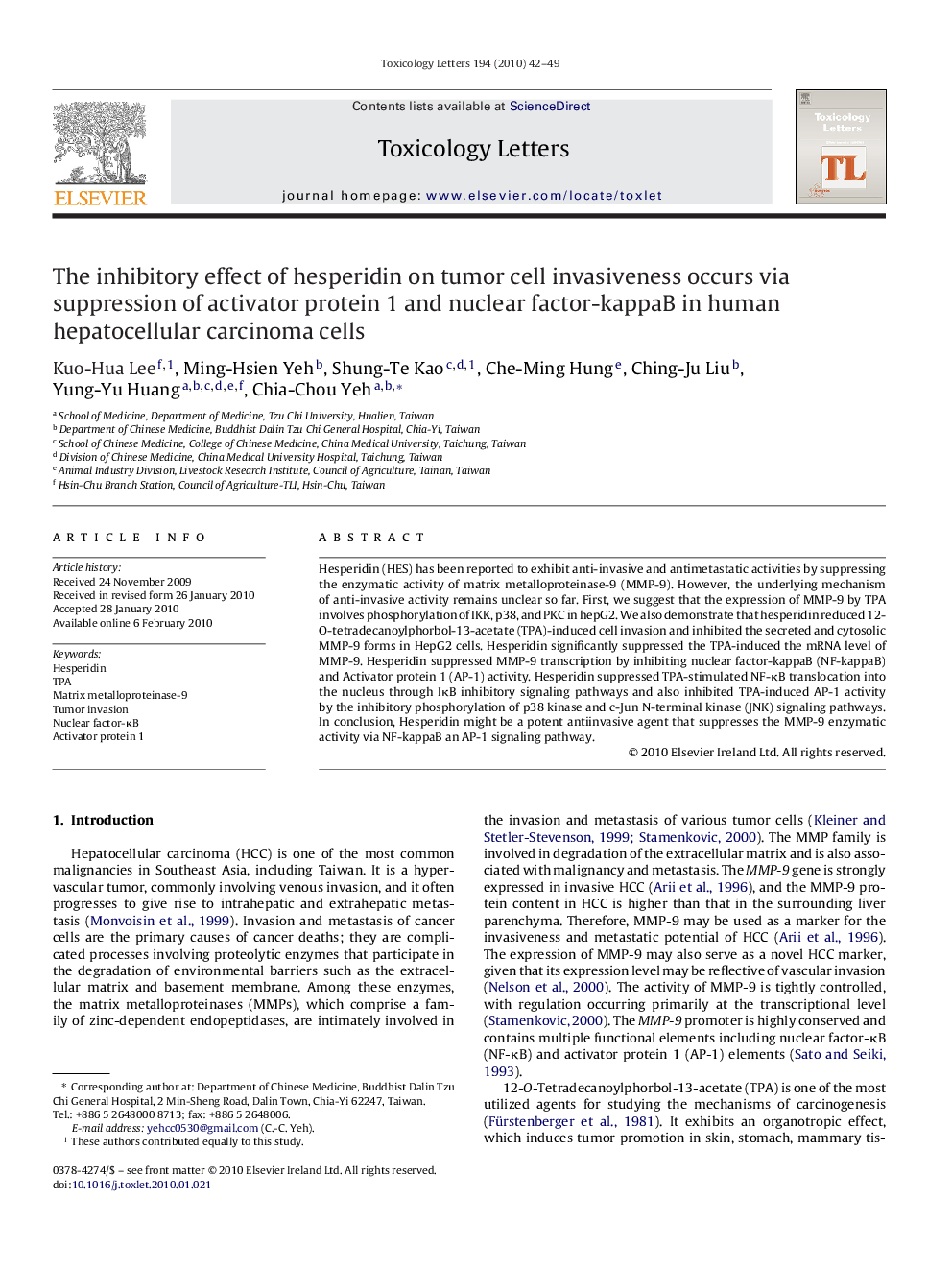| کد مقاله | کد نشریه | سال انتشار | مقاله انگلیسی | نسخه تمام متن |
|---|---|---|---|---|
| 2600417 | 1562641 | 2010 | 8 صفحه PDF | دانلود رایگان |

Hesperidin (HES) has been reported to exhibit anti-invasive and antimetastatic activities by suppressing the enzymatic activity of matrix metalloproteinase-9 (MMP-9). However, the underlying mechanism of anti-invasive activity remains unclear so far. First, we suggest that the expression of MMP-9 by TPA involves phosphorylation of IKK, p38, and PKC in hepG2. We also demonstrate that hesperidin reduced 12-O-tetradecanoylphorbol-13-acetate (TPA)-induced cell invasion and inhibited the secreted and cytosolic MMP-9 forms in HepG2 cells. Hesperidin significantly suppressed the TPA-induced the mRNA level of MMP-9. Hesperidin suppressed MMP-9 transcription by inhibiting nuclear factor-kappaB (NF-kappaB) and Activator protein 1 (AP-1) activity. Hesperidin suppressed TPA-stimulated NF-κB translocation into the nucleus through IκB inhibitory signaling pathways and also inhibited TPA-induced AP-1 activity by the inhibitory phosphorylation of p38 kinase and c-Jun N-terminal kinase (JNK) signaling pathways. In conclusion, Hesperidin might be a potent antiinvasive agent that suppresses the MMP-9 enzymatic activity via NF-kappaB an AP-1 signaling pathway.
Journal: Toxicology Letters - Volume 194, Issues 1–2, 15 April 2010, Pages 42–49